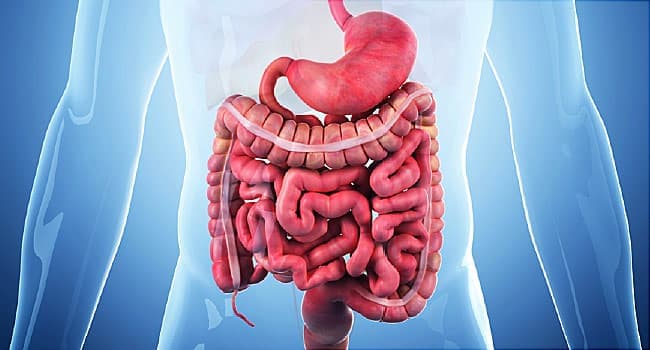On Might 2, 2024, an estimated 1 million Individuals battle with Crohn’s illness, a situation characterised by power irritation of the gastrointestinal tract. This illness can result in extreme signs, together with stomach ache, power diarrhea, fatigue, vital weight reduction, and extra, usually impacting sufferers’ high quality of life considerably. Regardless of its severity, a definitive treatment stays elusive, and present remedies fluctuate of their effectiveness throughout people.
Present therapeutic methods primarily contain drugs like steroids and immunosuppressants, geared toward managing signs and slowing illness development. Nevertheless, a notable portion of sufferers reviews diminished efficacy over time, highlighting an pressing want for novel therapeutic approaches. Surgical procedure, though viable for some, shouldn’t be a universally relevant answer, pushing the medical group to hunt out modern remedies to reinforce affected person outcomes considerably.
Amidst this backdrop, latest years have witnessed a big concentrate on pioneering complete options for managing Crohn’s illness and different types of inflammatory bowel illness (IBD). Analysis and funding into gastrointestinal well being have led to the exploration of cutting-edge remedies, together with the event of latest prescription drugs focusing on irritation and autoimmune responses, and fecal transplants designed to rebalance intestine flora with helpful micro organism from wholesome donors.
2024 has launched a number of promising developments. Notably, in California, analysis into stem cell remedy holds potential as a groundbreaking therapy. By doubtlessly repairing the intestinal lining and modulating immune responses, this remedy might provide a brand new hope for sufferers unresponsive to present therapy modalities. The journey from mouse fashions to human scientific trials is underway, signaling a possible shift within the therapy panorama.
Dr. Maneesh Dave, a number one determine on the College of California, Davis, emphasizes that whereas the final decade has seen vital advances in IBD therapy, the related dangers and the efficacy of those remedies over time stay a priority. “Sufferers usually expertise a drop in response over time, highlighting a dire want for modern options,” he asserts.
Researching Stem Cells
On the forefront of those improvements, Dr. Dave’s work focuses on the potential of human bone marrow-derived mesenchymal stem cells (hMSCs) in combatting irritation analogous to Crohn’s illness in mice. Early outcomes exhibiting mucosal therapeutic submit hMSC administration provide a glimmer of hope, paving the best way for doubtlessly transformative remedies pending additional analysis and U.S. regulatory approval.
“The power of those cells to suppress the immune system and foster intestinal regeneration is outstanding,” states Dr. Dave, underscoring the promise of stem cell remedy, contingent upon ongoing and future scientific trials within the U.S.
Nevertheless, Dr. Dave cautions in opposition to the attract of unregulated stem cell clinics, reinforcing the experimental standing of those remedies throughout the U.S. and warning of potential dangers with out FDA approval.
Feeling the Warmth
Addressing instant symptom detection, Northwestern College’s modern wi-fi temperature sensor affords a complicated strategy to figuring out inflammatory flare-ups in Crohn’s illness. By monitoring temperature variations, this implantable sensor might facilitate earlier intervention, presumably stopping in depth injury from unchecked irritation.
“Detecting irritation by way of temperature modifications can considerably affect therapy timelines and outcomes,” explains Dr. Arun Sharma, underscoring the significance of know-how in managing power situations like Crohn’s illness.
The profitable utility of those sensors in animal research presents a strong basis for human trials, aiming to revolutionize the monitoring and administration of inflammatory bowel illnesses and doubtlessly different inflammatory situations.
Particular Concentrate on Pediatric Care
In parallel efforts, pediatric Crohn’s illness administration garners particular consideration by way of collaborative analysis throughout North America. The CAMEO research goals to uncover why sure kids reply to anti-TNF remedy whereas others don’t, underlining the need of tailor-made therapy methods in pediatric care. Dr. Neal LeLeiko’s insights spotlight the crucial want for optimized dosing and the right administration of those medicine to make sure their efficacy and security for kids affected by Crohn’s illness.
“Tailoring these remedies to the distinctive wants of pediatric sufferers is paramount,” notes Dr. LeLeiko, advocating for precision in pediatric Crohn’s illness look after improved affected person outcomes.
This complete evaluation illustrates the evolving panorama of Crohn’s illness therapy, marking vital developments and the collaborative efforts paving the best way for future improvements. As analysis progresses, the hope for more practical and customized remedies grows, beckoning a brand new period within the administration of Crohn’s illness and different types of inflammatory bowel illness.
